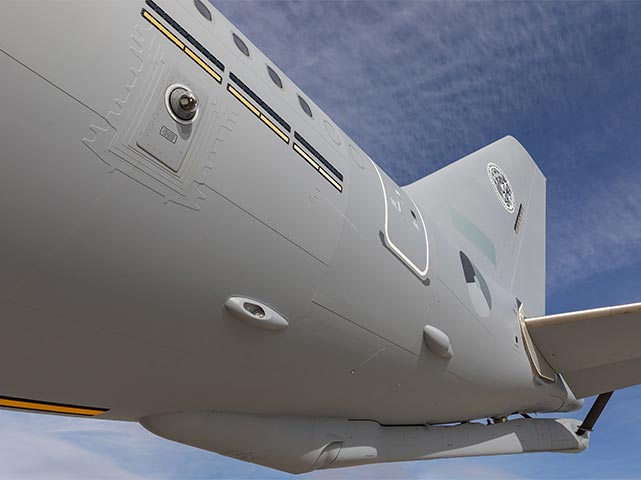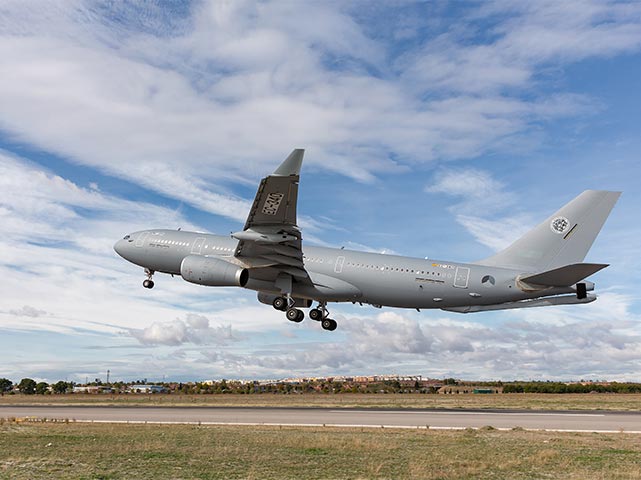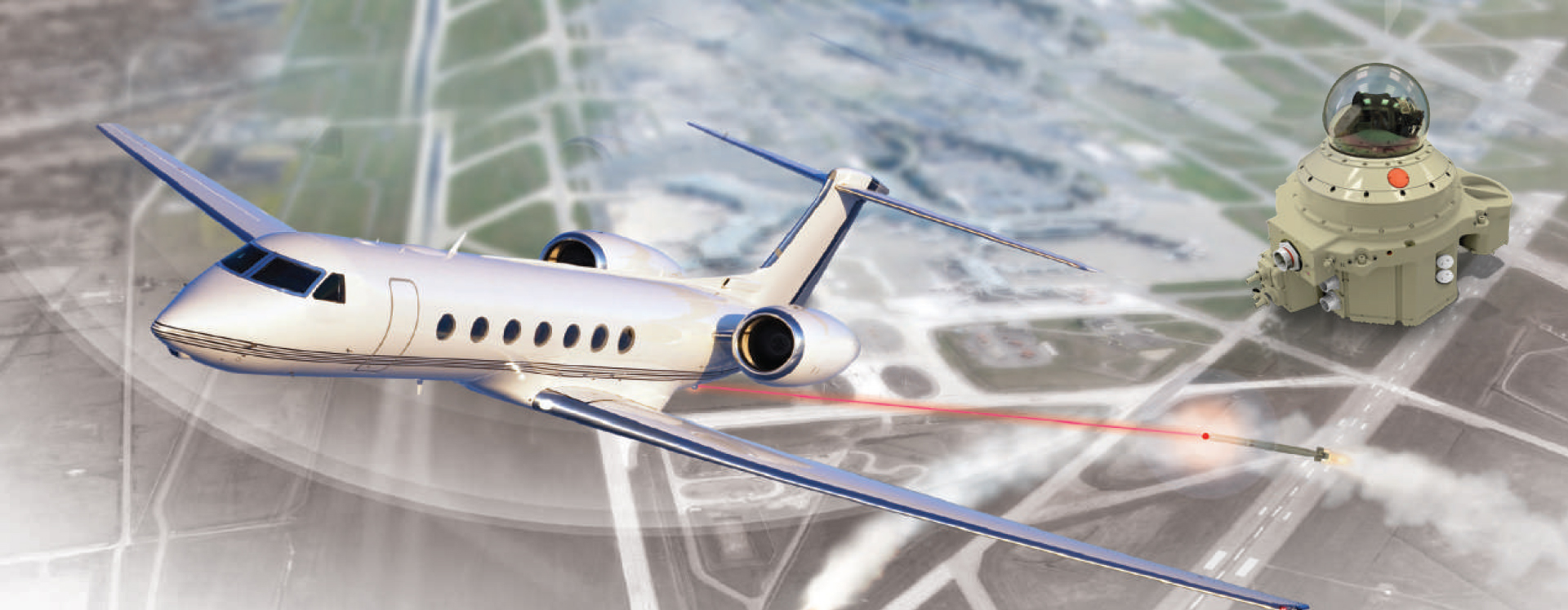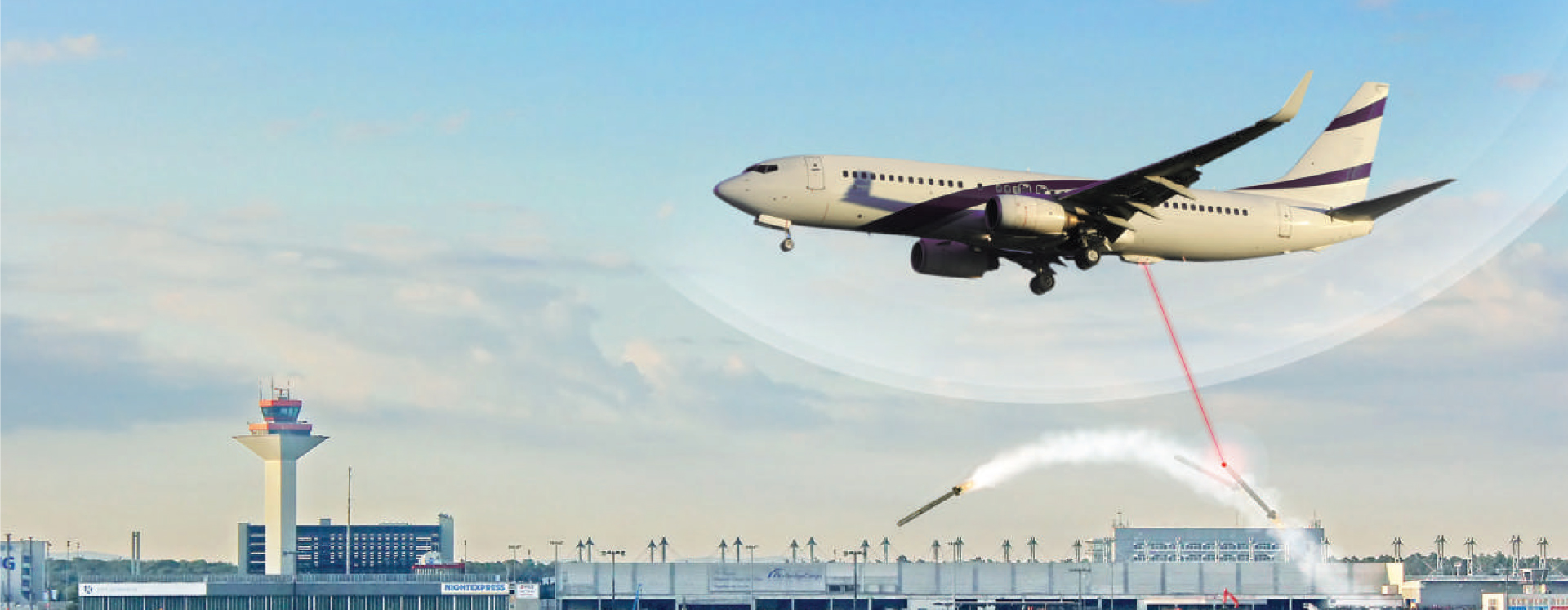Countermeasure Innovation: Exploring MUSIC™ DIRCM
The Multi-Spectral Infrared Countermeasure (MUSIC) System for countering the menace of heat-seeking surface-to-air missiles
In November 2002, two Strela-2M missiles were launched by terrorists against a Boeing 757 passenger jet belonging to Israel’s Arkia airline as it was departing Mombasa airport in Kenya.
The missiles missed their mark, streaking past the civilian aircraft. This was one of the reasons that led the Israeli government to choose Elbit Systems to develop a solution to protect the national airliners aircraft against heat seeking missiles like MANPADS (man-portable air defense systems). Elbit Systems was chosen, among other reasons, due to the company’s legacy and extensive experience and knowledge in electro-optics and Elbit System’s Electro-Optic’s (ELOP) recognition as the national R&D Center of Excellence for military lasers solutions.
The urgency to protect aircraft was felt across the world and became even more pressing after the fall of Saddam Hussein in 2003 when over 4,000 MANPADs went missing from Iraqi military holdings, according to a 2004 New York times report.
According to a 2017 US Department of State report, there are an approximately 1 million MANPADS believed to be in existence. Found in the hands of terror groups, drug cartels and other hostile actors, MANPADS pose a serious risk to aircraft as they are highly proliferated, easy to conceal and hard to detect up to the moment the missile is launched towards its target that it can hit within a few seconds.
“Many of the missiles held by terror organizations are MANPADS. They are a big threat to aviation around the world” said Bnaya, Head of DIRCM Systems Business Unit, Airborne EO & Laser Systems – Elbit Systems – ISTAR.

ENTER THE DIRCM
A heat-seeking missile locks onto and tracks an aircraft by detecting its heat signature, typically emitted from the aircraft’s engine. The Directed Infrared Countermeasure (DIRCM) system employs an advanced electro-optic turret and laser technology to disrupt or jam the missile’s tracking ability by optically breaking its lock on the target. This interference aims to prevent the missile from maintaining its course toward the aircraft-thereby protecting everyone on board.
Elbit’s family of DIRCM systems protects all types of aircraft against heat-seeking surface to air missiles and is marketed in various configurations tailored to different platforms under the brand MUSIC™ family – Multi Spectral Infra-Red Countermeasure.
The C-MUSIC system is designed to be carried as an interchangeable pod mainly in Civil Aviation, while the J-MUSIC system is tailored for large aircrafts, enabling tailored sensor deployment across the airframe. The mini-MUSIC system, on the other hand, is intended to protect smaller platforms, such as helicopters and smaller airborne platforms.
The solution is fully automatic and autonomous, and while the warning system can alert the pilots of the incoming threat, no crew involvement is needed during engagement.

” Our DIRCM systems are commercial off-the-shelf (COTS) solutions, manufactured entirely in-house. These systems are consistently kept up-to-date and continuously improved to meet evolving security demands and maintain peak performance. ,” said Haim, Director of Business Development and Marketing for Airborne EO & Laser Systems.
The DIRCM systems developed and manufactured by Elbit are tested and approved by the Israeli government, are battle proven and operationally fielded. These systems are continuously undergoing upgrades in order to compound the need to have effective, reliable and up-to-date technology to protect aircrafts from the MANPADs threat, as well as any new generation missile threat.
“Our DIRCM systems are installed and operational on more than 30 types of aircraft and aerial platforms. The demand comes from military forces, heads of states, and commercial aircraft operators and it is constantly growing,” Bnaya said, adding that “we are facing relatively high demand, are currently producing hundreds of systems a year and are working to expand our manufacturing and maintenance facilities to meet customer and market needs.”
Elbit Systems is one of the only company that is internationally certified to have its DIRCM systems installed on operational commercial airlines. The systems have over 500,000 accumulated flight hours. The systems are ITAR free and operational on almost every continent with a strong presence in Europe. With an open architecture and flexible approach to accept the needs of each client, Elbit’s MUSIC systems are one of the most requested DIRCM systems in the world.
“We are in constant communication with airlines and aircraft manufactures around the world, in order to enlarge the types of aircraft that our DIRCM systems are installed on,” added Bnaya.
” We believe this system is essential and should be installed on every aircraft, as it provides a fundamental level of protection needed for safe operations. Both civil and military users worldwide face the threat of heat-seeking missile attacks, making this protection important for virtually all aircraft, regardless of their mission or region,” concluded Haim.
The content of the article does not constitute business or financial information about Elbit Systems Ltd. (the “Company”) and is not intended to be a basis for making investment decisions in the Company’s securities. In order to obtain business or financial information about the Company, please refer to the reports and filings that the Company regularly publishes on the website of the U.S Securities and Exchange Commission (EDGAR) and on the notification system of the Tel Aviv Stock Exchange (Maya).
The article may contain forward-looking statements such as estimates, forecasts, estimates, plans, etc. that refer to future events that are considered forward-looking information as defined under the securities laws of Israel and the United States. There is no certainty that such information will be realized, in whole or in part, and the actual result may differ from what was presented in the article, among other things due to its dependence on external factors that are not under the control of the Company and that cannot be evaluated in advance. The forward-looking statements are based on the Company’s estimates at the time of publication, and the Company has no obligation to update or correct this data.






